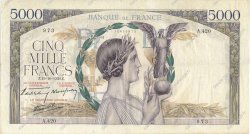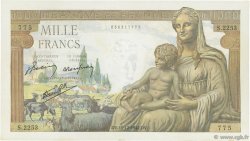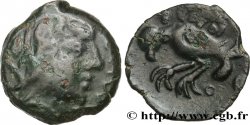fjt_015099 - ARDENNES - JETONS ET MÉDAILLES DU SEDANAIS Manufacture du Dijonval 1644
non disponibile.
Articolo venduto sul nostro negozio (2020)
Prezzo : 380.00 €
Articolo venduto sul nostro negozio (2020)
Prezzo : 380.00 €
Tipo : Manufacture du Dijonval
Data: 1644
Metallo : rame rosso
Diametro : 37 mm
Asse di coniazione : 12 h.
Orlo : lisse
Grado di rarità : R3
N° nelle opere di riferimento :
Diritto
Titolatura diritto : À L’EXERGUE EN DEUX LIGNES : MANUFACTURE PAIGNON/ ETABLIE EN 1644.
Descrittivo diritto : Une femme à demi nue assise à gauche sur des ballots d’étoffe de laine, sur l’un on lit LAINE D’ESPAGNE. cette femme appuie sa main droite sur le manche d’un outil dont la lame est posée à terre, et de la gauche elle tient un écheveau de laine posé sur son genou. Dans le champ, à gauche, une partie antérieure de cheval au galop et un navire à trois mâts, derrière, deux autres vaisseaux sous voiles ; à l’exergue en deux lignes : MANUFACTURE PAIGNON/ ETABLIE EN 1644.
Rovescio
Descrittivo rovescio : Grand P dans une couronne formée d’une branche de chêne et d’une branche d’olivier.
Commento
Très rare jeton dont un exemplaire en argent existe au Musée de l’Ardenne de Charleville-Mézières et que nous avons proposé dans N° v31_1770. D’un grand intérêt sur le patrimoine pré-industriel français.
Une activité drapière existe à Sedan depuis le XVIe siècle et se développe sous l’influence des réfugiés protestants. Après le rachat de la principauté par la France, l’industrie textile se développe. La manufacture du Dijonval près de Sedan est créée en 1646 par Nicolas Cadeau. Il obtient de Louis XIV le privilège de fabriquer des draps à la façon de Hollande. Jusqu’en 1666, c’est la seule fabrique de draps fins en France. La manufacture compte un corps de logis, une teinturerie et un troisième bâtiment industriel, plus deux fouleries. En 1711, le Dijonval est acheté par les Paignon qui construisent de nouveaux bâtiments qui serviront jusqu’au début du XXe siècle. Au XVIIIe siècle, la production triple et, à la veille de la Révolution, la manufacture emploie environ 14.000 personnes dont 10.000 en campagne à tisser et filer la laine. Splendide bâtiment, le Dijonval est en cours de restauration depuis 1987.
Cet exemplaire provient de la Collection Alain Tissière, MONNAIES XVII.
Very rare token, a silver example of which exists at the Ardennes Museum in Charleville-Mézières and which we offered in No. v31_1770. Of great interest in French pre-industrial heritage.
A drapery industry has existed in Sedan since the 16th century and developed under the influence of Protestant refugees.. After the principality was taken over by France, the textile industry developed.. The Dijonval factory near Sedan was created in 1646 by Nicolas Cadeau. He obtained from Louis XIV the privilege of manufacturing sheets in the Dutch style.. Until 1666, it was the only fine cloth factory in France.. The factory has a main building, a dye house and a third industrial building, plus two fulling mills.. In 1711, the Dijonval was bought by the Paignons who built new buildings that would serve until the beginning of the 20th century.. In the 18th century, production tripled and, on the eve of the Revolution, the factory employed around 14. 000 people including 10. 000 in the countryside weaving and spinning wool. A splendid building, the Dijonval has been undergoing restoration since 1987.
This example comes from the Alain Tissière Collection, XVII COINS
Une activité drapière existe à Sedan depuis le XVIe siècle et se développe sous l’influence des réfugiés protestants. Après le rachat de la principauté par la France, l’industrie textile se développe. La manufacture du Dijonval près de Sedan est créée en 1646 par Nicolas Cadeau. Il obtient de Louis XIV le privilège de fabriquer des draps à la façon de Hollande. Jusqu’en 1666, c’est la seule fabrique de draps fins en France. La manufacture compte un corps de logis, une teinturerie et un troisième bâtiment industriel, plus deux fouleries. En 1711, le Dijonval est acheté par les Paignon qui construisent de nouveaux bâtiments qui serviront jusqu’au début du XXe siècle. Au XVIIIe siècle, la production triple et, à la veille de la Révolution, la manufacture emploie environ 14.000 personnes dont 10.000 en campagne à tisser et filer la laine. Splendide bâtiment, le Dijonval est en cours de restauration depuis 1987.
Cet exemplaire provient de la Collection Alain Tissière, MONNAIES XVII.
Very rare token, a silver example of which exists at the Ardennes Museum in Charleville-Mézières and which we offered in No. v31_1770. Of great interest in French pre-industrial heritage.
A drapery industry has existed in Sedan since the 16th century and developed under the influence of Protestant refugees.. After the principality was taken over by France, the textile industry developed.. The Dijonval factory near Sedan was created in 1646 by Nicolas Cadeau. He obtained from Louis XIV the privilege of manufacturing sheets in the Dutch style.. Until 1666, it was the only fine cloth factory in France.. The factory has a main building, a dye house and a third industrial building, plus two fulling mills.. In 1711, the Dijonval was bought by the Paignons who built new buildings that would serve until the beginning of the 20th century.. In the 18th century, production tripled and, on the eve of the Revolution, the factory employed around 14. 000 people including 10. 000 in the countryside weaving and spinning wool. A splendid building, the Dijonval has been undergoing restoration since 1987.
This example comes from the Alain Tissière Collection, XVII COINS








 Segnalare un errore
Segnalare un errore Stampate la pagina
Stampate la pagina Condividi mia selezione
Condividi mia selezione Fai una domanda
Fai una domanda Consegnare / vendere
Consegnare / vendere










